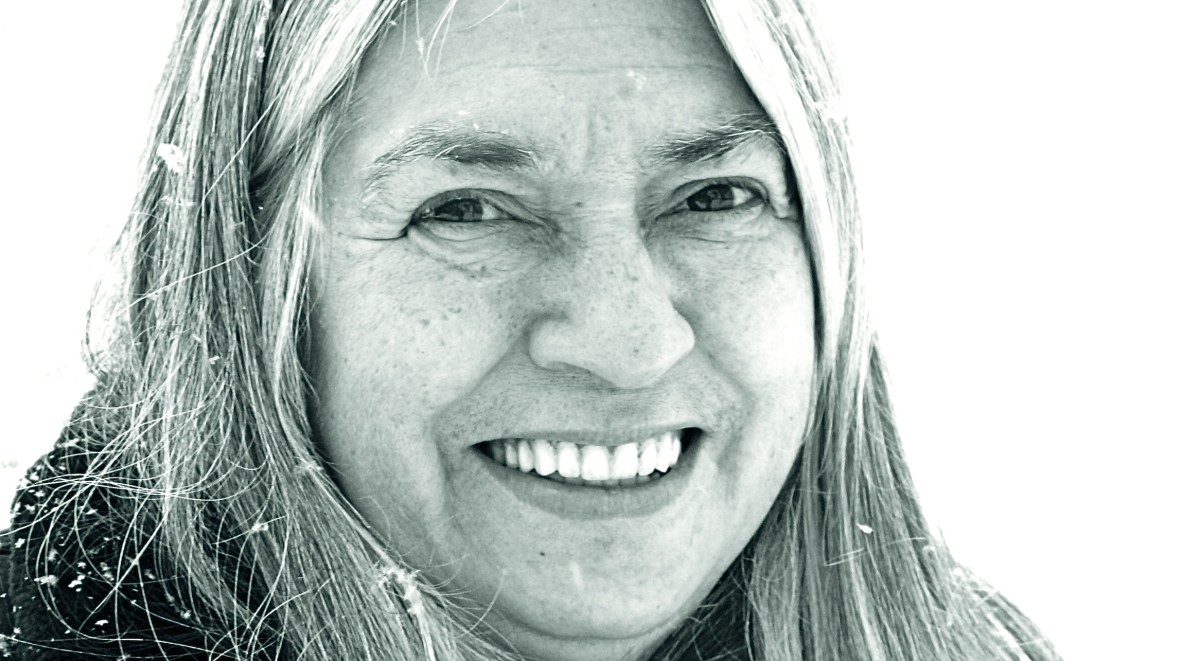
Introduction by Chris Evans.
PRISM 54.4 features the winners of our 2016 Short Fiction Contest, as chosen by contest judge, Lee Maracle—first place winner “You Can Do Better” by Taryn Pearcey, first runner-up “Montreal River” by Lesley Krueger, and second runner-up “Bereavement Tax Credit” by Richard Kelly Kemick.”
Lee Maracle is the author of a number of critically acclaimed literary works, including Sojourner’s and Sundogs, Bobbi Lee, Daughters Are Forever, Will’s Garden, Bent Box, and I Am Woman, and is the co-editor of a number of anthologies including the award-winning My Home As I Remember. Maracle is a member of the Stó:lō nation. In 2009, she received an Honorary Doctor of Letters from St. Thomas University, and recently received the Queen’s Diamond Jubilee Medal and the Premier’s Award for Excellence in the Arts. Her latest works are: Celia’s Song, Memory Serves and Other Words, and Talking to the Diaspora. Below, she gives her thoughts on the reading and judging process.
A short story is lean, but substantial, line after line of moving images that are critical. Movement, rhythmic and lyrical, builds the plot. Its lyricism must be held in check. It cannot be too poetic so as so to mix up the mediums of poetry and short story and challenge the readers listening skills. We, after all, hear a story, we don’t just read it. There should not be any lines that interrupt the flow and stop the reader from reading or throw the reader off. The reader should never want to get up and get a cup of coffee before finishing. In their own way all three winning stories—Taryn Pearcey’s “You Can Do Better”, Lesley Krueger’s “Montreal River”, and Richard Kelly Kemick’s “Bereavement Tax Credit”—fulfil this promise.
This is delicate and difficult: In “You Can Do Better” “The boy and his mother lived down the hall.” No name is offered, but no matter, we have Emma, who has watched them and only them, for two years now. This watching gives them significance—foreshadows something to come. We have their essential character, not exactly normal, “a stranger is a stranger, no matter how kind”, a tad cynical, the mother says this and so rejects all friendly overtures from her neighbours. This distance pulls us toward the characters rather than alienating them—nice technique.
Taryn Pearcey does not paint the hall, nor put a face to the mother or the boy. But the clear and firm characterization of the mother compels the reader to visualize them. I do. I like it when I am somewhat in control of the narrative. I take charge and visualize their face, their hair, and now I am caught in the web of story, spiralling toward its centre, wondering about its tension, and pleased at my imagination’s small participation in the creation of the story. There is tension here. The mother seems to hold the thread of the tension—as mothers often do inside families. Well that at least leans toward the familiar. I am getting comfortable, the journey begins slowly, then picks up momentum. The mother knocks and we enter Emma’s world.
I want to read a good story, over and over again. I want it to clarify me somehow and yet maintain its ability to also hold me somewhat mystified. I want it to weave the characters into a common fabric that is complex and unique, like a quilt whose patches are asymmetrical, but somehow give the illusion of being neat squares. All three winning stories pull at my desire to read them again, to glean more from then, but “You Can Do Better” has me mesmerized even after reading it again and so I chose it as the winner.
All three stories cover important themes, are well crafted and entertaining. I expect that from the short stories I read. They should contain an element of mystery without mystifying the reader so much that I become annoyed. “You Can Do Better”, “Montreal River,” and “Bereavement Tax Credit” all accomplish this. I come away satisfied: I feel as though I have been well fed, my imagination satiated.
Pick up a copy of PRISM 54.4 to read Taryn Pearcey’s winning story, as well as our two runners-up. You can also order one online through our online store.